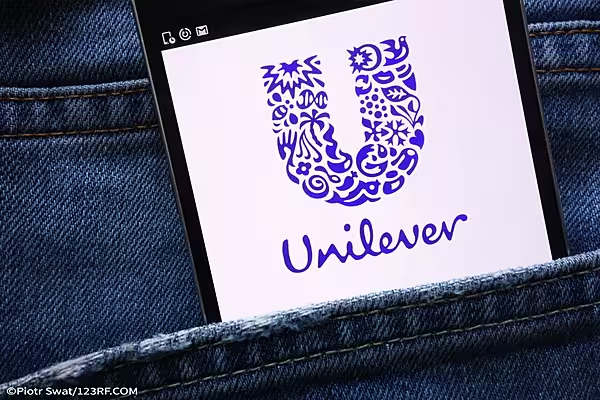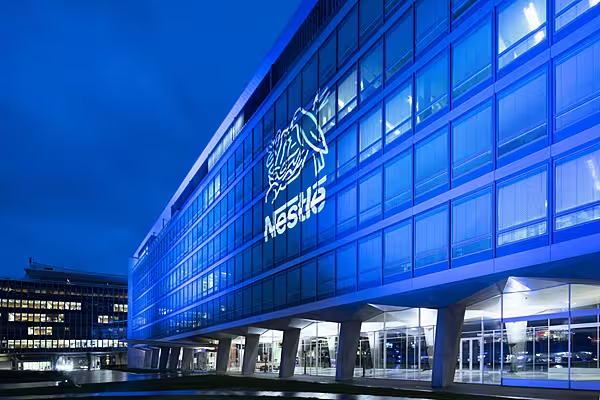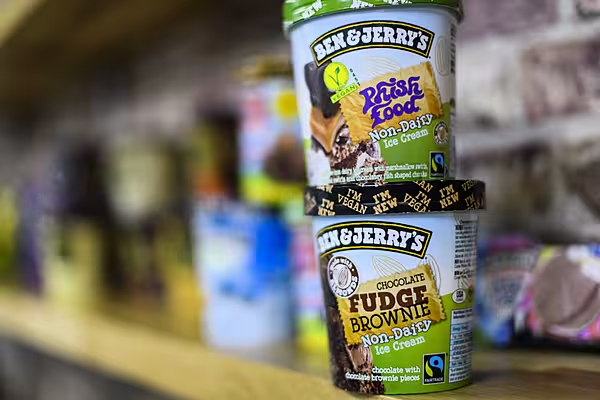With discussion around the likes of equality and diversity becoming more prevalent than ever, retailers and consumer goods firms are eager to get involved in the conversation.
As brands increasingly seek to get consumers on board with thought-provoking marketing, however, are they really practising what they preach?
Last week, Unilever chief executive Alan Jope hit out at brands engaging in “woke-washing” in their marketing campaigns, namely brands using the language and imagery of social-justice movements to market their products, but failing to back them up with any decisive action.
“Woke-washing is beginning to infect our industry. It’s polluting purpose,” Jope told the Cannes Lion International Festival of Creativity.
“There are too many examples of brands undermining purposeful marketing by launching campaigns which aren’t backing up what their brand says with what their brand does,” he added.
The head of the company behind major consumer brands such as Dove, Persil and Hellmann’s mayonnaise urged advertisers and agencies to hold each other to account in the future.
“Purpose-led brand communications is not just a matter of ‘make them cry, make them buy.’ It’s about action in the world,” he said.
This is not the first time that the idea of ‘woke-washing’ has come up in recent months, however, it is a bold statement on the matter from one of the world’s biggest consumer goods firms, and a sign that this may be something about which brands will need to be more cautious, going forward.
Broke Or Woke
Many companies have come under fire recently, over concerns that they are trying to cash in on being ‘woke’ – a term associated with being aware of social injustice.
It’s not unlike the concept of ‘greenwashing’, which was coined back in the 1980s, to describe organisations that promote environmentally friendly practices in their marketing, rather than in their actions.
Although being seen to ‘be green’ has been in vogue for a long time, brands are now increasingly dipping their toes into more political and social issues, especially when it comes to equality and diversity. However, not all of these moves have been welcomed with open arms by consumers.
Ahead of Pride month, companies have been sticking rainbow flags on everything from IKEA shopping bags to Listerine mouthwash, with mixed reactions from the public.
Last month, UK retailer Marks & Spencer was criticised for launching an ‘LGBT sandwich’, similar to a traditional BLT, but with added guacamole.
Although the supermarket was aiming to raise funds for LGBT+ youth organisations with the sandwich’s sales, there were questions over whether there would be better ways to achieve this, and if M&S was co-opting the image of a minority community just to appear ‘woke’, or to gain attention with a novelty product.
Hey Mum & Dad, I’ve got something to tell you... I’m Guacamole pic.twitter.com/lBsBPiQj7v
— James Barr (@imjamesbarr) May 2, 2019
Likewise, Scottish beer-maker BrewDog attracted attention last year for launching a ‘Pink IPA’, described as a ‘beer for girls’, to highlight awareness of the gender pay gap.
However, the marketing move was criticised by the Women’s Equality Party as a ‘gimmick’ that took no real action with regards to diversity.
"A lot of lip service is being paid, but not enough action is being taken to tackle inequality".
WE agree, BrewDog.
So we look forward to seeing the action - starting with publishing those pay gap stats in full - rather than more ironic gimmickshttps://t.co/ETFV2g3hPA— Women's Equality Party (@WEP_UK) March 6, 2018
Taking A Stand
While there are plenty of small examples of provocative products and campaigns that have divided public opinion, there have also been examples of major brands trying to take advantage of topical social issues.
That includes the Gillette ad from earlier this year, which aimed to take on toxic masculinity in the ‘Me Too’ era, and Nike’s use of American football player and civil rights activist Colin Kaepernick in its recent campaign.
Elsewhere, car company Audi initially won acclaim for its 2017 Super Bowl ad, endorsing equal pay, until it was revealed that only two of the company’s top 14 US executives were female and its global management board was entirely male.
Perhaps the most high-profile example of ‘woke-washing’ in recent years was the 2017 Pepsi ad featuring Kendall Jenner, which was accused of co-opting the imagery of the Black Lives Matter movement in the US.
‘If only Daddy would have known about the power of #Pepsi,’ Bernice King, daughter of Martin Luther King, Jr, tweeted, tongue firmly in cheek, before PepsiCo promptly pulled the campaign, stating that the company had ‘clearly missed the mark’.
We at Pepsi believe in the legacy of Dr. King & meant absolutely no disrespect to him & others who fight for justice. pic.twitter.com/rM8W8i0Euu
— Pepsi (@pepsi) April 5, 2017
Transparency
While there’s certainly nothing wrong with companies supporting worthy causes or standing up for social issues, consumers are increasingly looking towards brands that do actually practise what they preach.
A recent study by Futerra found that Generation Z consumers – those born from the mid-nineties onwards – demand greater sincerity and transparency from brands, and they have little time for companies that claim to be something they are not.
“Millennials drove brands to be purposeful, but Generation Z are demanding proof,” said Solitaire Townsend, co-founder of Futerra. “This generation were raised to question fake news, be suspicious of secrecy, and hold sincerity as sacred.”
In last week’s speech, Unilever’s Jope cited research from Kantar that 91% of millennial consumers would switch brands for one that champions a cause, and brands that were recognised for their strong ‘commitment to purpose’ had grown at twice the rate of other brands over the last 12 years.
Although Jope added, “Brands without a purpose will have no long-term future with Unilever,” the company has not been without its own controversies in past marketing campaigns.
In 2017, Dove apologised after an online ad seemed to show a black woman morphing into a white woman after using its body lotion, which was accused by some to be a hypocritical move by a brand that aims to promote body diversity in its messaging.
Future-Proof
As brands seek to remain relevant to their target markets, activism has become one of the new big marketing tactics, and a company’s position on topical issues can offer a point of difference in a competitive marketplace – or at least attract some attention on social media.
Whether these efforts are seen as cynical marketing attempts or as companies genuinely supporting important issues, it is likely that ‘woke’ campaigns are here to stay.
If brands choose to go down this route in the future, it seems that they will need to get the balance right, and ‘walk the talk’ by remaining genuine and consistent in both their messaging and their actions.
Consumers are being vocal about their thoughts on tokenism and the co-opting of important social movements for corporate gain, and they will ultimately vote with their wallets for the brands in which they believe.
© 2019 European Supermarket Magazine – your source for the latest retail news. Article by Sarah Harford. Click subscribe to sign up to ESM: European Supermarket Magazine.














